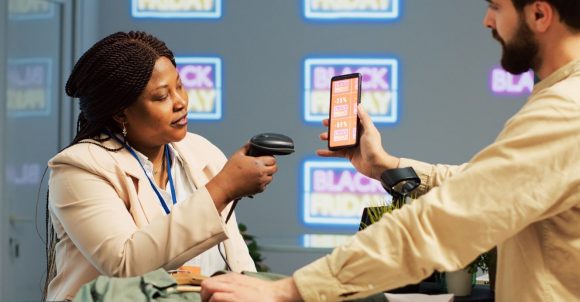Customer loyalty is more important than ever, especially since consumers are bombarded with more sales messages than they can count. Standing out requires a personalized approach to make customers feel seen, heard, and understood.
While personalization is highly valued, customers also prioritize data security. Businesses that strike the balance between delivering tailored experiences and maintaining data protection measures still stand apart from the crowd.
Customer loyalty software
Kirk Donlan, senior content marketing manager at Emarsys, shares several ways in which customer loyalty software can drive retention.
Let’s explore the top strategies businesses can implement to enhance their loyalty programs.
AI-powered customer insights
In order to provide personalized experiences, the main goal is to understand customer behavior and preferences. This can be done by leveraging artificial intelligence (AI) to analyze vast amounts of customer data.
Donlan explains: “The good news is that this information is readily available in the form of customer, sales and product data. The bad news? In order to get the level of insight needed to personalize at scale and tangibly strengthen customer relationships, you’ll need to sort through a LOT of data.”
If AI-powered software is used for this, it will provide actionable insights that would typically require a team of data scientists to uncover manually.
Reward social engagement
“Social media is a powerhouse for reach and customer engagement,” says Donlan. It’s also good for cultivating customer loyalty.
By identifying, incentivizing, and rewarding customers for interacting with their brand on social platforms, businesses can gain the competitive edge.
With this strategy, actions are usually tied to social media actions, such as liking, commenting, sharing or following. If coupled with unique loyalty rewards, businesses can boost their social reach while growing a loyal community.
ALSO READ: Customer’s mood determines a response to discounts
Personalized rewards
Consumers are more likely to engage in activities that provide “clear, achievable, and repeatable rewards,” says Donlan. “If brands tailor those rewards to the interests of their audience, they can harness that behavioral psychology and take it to the next level.”
eBay, for example, entices customers with a personalized experience. Their ‘Shop This Look’ strategy is a confidence booster for the shopper looking for that perfect timeless piece. And it also reduces the logistical headache of parcel returns.
This method also ties in with a study conducted by US-based marketing platform Mailchimp and marketing consultancy firm Edelman.
The data – gleaned from more than 1,500 consumers and 700 e-commerce professionals – shows that “personalization is at the heart of being customer-obsessed.”
Long gone are the days of sending marketing emails out in bulk; customers are demanding more focused approaches.
READ MORE HERE: New study finds personalizing marketing emails ‘cut through the clutter’
About the author
Cheryl has contributed to various international publications, with a fervor for data and technology. She explores the intersection of emerging tech trends with logistics, focusing on how digital innovations are reshaping industries on a global scale. When she's not dissecting the latest developments in AI-driven innovation and digital solutions, Cheryl can be found gaming, kickboxing, or navigating the novel niches of consumer gadgetry.











